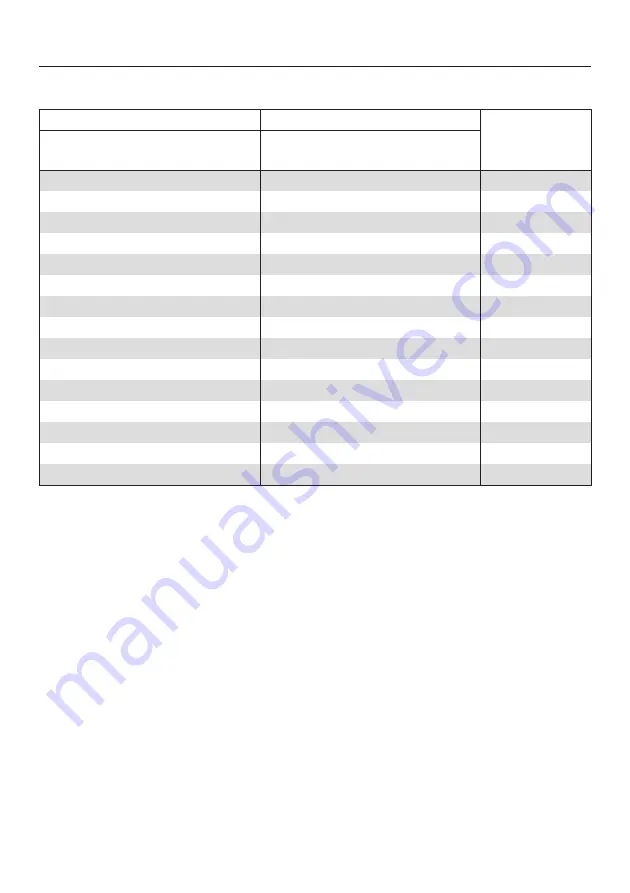
d
1)
V
Q
6)
[°C]
6
[°C]
+
[min]
6
[°C]
+
[min]
–
–
190–210
110–140
2)
85–95
–
–
200–220
45–55
3)
40–70
7)
140–160
100–120
4)
150–170
100–120
4)
80–90
160–180
110–130
4)
180–200
100–120
4)
80–90
170–190
130–160
4)
190–210
130–160
4)
80–90
160–180
60–80
4)
170–190
80–100
4)
75–80
170–190
60–70
4)
190–210
60–70
4)
75–80
170–190
90–110
4)
190–210
100–120
4)
70–80
170–190
90–120
4)
200–220
90–120
4)
80–85
–
–
190–210
50–60
70–75
190–210
60–70
190–210
60–75
5)
85–90
180–200
90–110
190–210
90–110
5)
85–95
180–200
100–120
190–210
110–130
5)
85–95
170–190
140–170
180–200
150–180
85–90
170–190
35–55
190–210
35–55
75–80
U
Fan plus /
[
Auto roast /
d
Moisture plus /
V
Conventional heat
6
Temperature/
+
Roasting duration /
Q
Core temperature for the food probe
As a general rule, use shelf level 2.
1) After the heating-up phase, inject the bursts of steam at intervals throughout the cooking
duration.
2) Roast with the lid on first, then remove the lid halfway through roasting and add approx.
½ litre liquid.
3) Pre-heat the oven. However, switch "Rapid heat-up" off. To do this, select "Change –
Heat-up phase – Normal".
4) Add approx. ½ litre liquid halfway through roasting.
5) Use level 3.
6) When using the food probe, enter an appropriate core temperature for the food being
cooked.
7) Select a core temperature which is appropriate for how well done you want the food to
be cooked:
rare: 40–45 °C, medium: 50–60 °C, well done: 60–70 °C
Roasting
89
















































